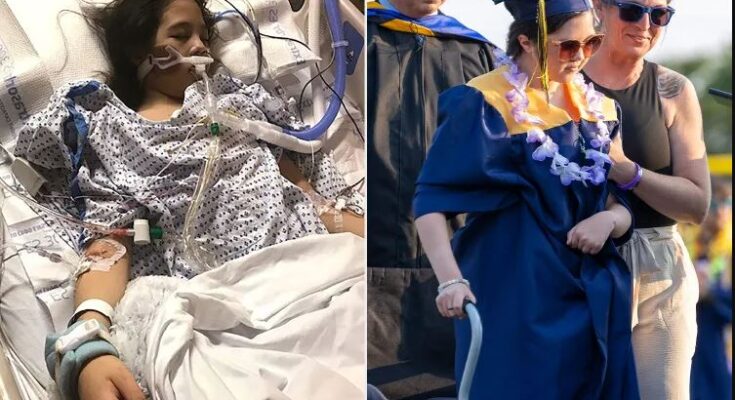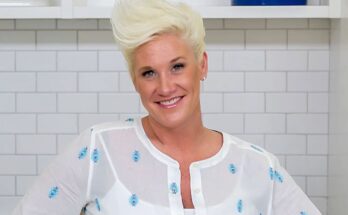“When I was in the hospital, I heard a lot about all the things I’d probably never be able to do again,” says 18-year-old Bella Chambasis. She kept going anyway
NEED TO KNOW
- In 2021, a rare autoimmune disease attacked then-14-year-old Bella Chambasis’s organs, leaving her hospitalized for nearly a year and requiring a kidney transplant.
- Chambasis also suffered a debilitating stroke — only one of several major challenges for her family over the years
- But the teen persevered and graduated with honors in Connecticut last week: “Never let anyone tell you what you can or can’t do”
A roar of applause and cheers echoed through Connecticut’s East Haven High School’s football stadium last week as 18-year-old Bella Chambasis slowly made her way across the mid-field stage — flanked by her mom and a school staff member — to receive her diploma.
“I heard everyone screaming at first,” recalls Chambasis. “But then I stopped hearing anything because I was so focused on getting across the stage and making it to the other side.”
For most teenagers, graduating from high school is a rite of passage that marks one of their first steps into adulthood.
For Chambasis — who has endured more hardship and loss than most of us face in a lifetime — those eight steps she took across the stage at her ceremony on Thursday, June 12, were the culmination of years’ worth of hard work and the fulfillment of a vow she made shortly after emerging from a coma in 2021.
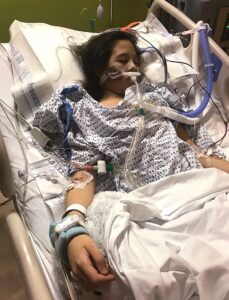
“I didn’t just want to be remembered as ‘the girl in the wheelchair,’ ” says the 18-year-old honors student when asked why it was so important for her to receive her diploma while standing on her own two feet. “I wanted everyone there to remember me as ‘Bella, the girl who overcame kidney failure and survived.’ ”
The story behind Chambasis’ moment of triumph is a dark one, tracing back to April 2009. That’s when the family’s babysitter murdered her big sister, Arianna, who was 7.
“It was a very horrific time for us, something none of us will ever get over,” says Deann Hurley, Chambasis’ mom.
Two years later, her father — Jorge — was killed in a motorcycle accident. “It was like one blow after another,” Hurley says. “We haven’t really been dealt the best deck of cards.”
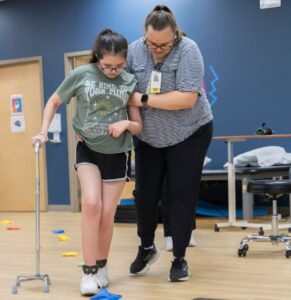
Life slowly returned to normal during the next decade. But in January 2021, Hurley watched as her usually spunky youngest daughter began experiencing nose bleeds and prolonged bouts of lethargy.
An urgent care doctor told Chambasis to put Vaseline in her nose, then sent her on her home. But two days after that, she could barely stand up and began having difficulty breathing.
Hurley rushed her to a local hospital and was quickly told, “Your daughter’s very sick.”
Chambasis was intubated to help her breathe and, because she was so anemic, had more than a dozen blood transfusions.
Tests soon revealed that she was suffering from a rare autoimmune disorder known as ANCA-associated vasculitis, which causes inflammation of blood vessels throughout the body. Before long, her kidneys failed, and she was put on dialysis.
An initially promising recovery masked a looming problem: Two months later, just as Chambasis was preparing to leave the hospital, she suffered a serious stroke and spent the next month in a coma.
By that April, doctors began to brace Hurley for the possibility that her daughter might never awaken.
“They began having quality of life conversations with me, explaining how they could stop her dialysis and just let her renal functions shut down,” Hurley says. “All I could think was, ‘I’m not going to lose two daughters in the month of April.’ ”
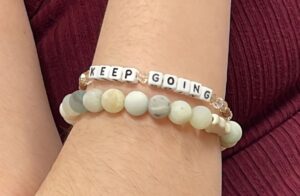
Instead, she kept a constant vigil by Chambasis’ hospital bed, playing Bruno Mars and Keyshia Cole tunes for her nonstop.
And then one afternoon about a month into the coma, in the middle of Billie Eilish’s song “Copycat,” Hurley noticed that her daughter’s lips were moving. “She was lip-syncing the song word for word,” she says. “It was absolutely amazing.”
Asked about her memories from that period, Chambasis says, simply: “I’ve always loved music and have always learned lyrics to songs really fast. And when I like a song, I always sing it no matter what.”
It took another five months before she was strong enough to be released from the hospital. Her left side had been severely weakened by the stroke and she used a wheelchair to move. “Even just sitting up,” Hurley says, “you could see the pain in her face.”
During this period, the joy of realizing she’d survived was soon tempered by questions of what her life was going to look like in the future.
“When I finally did come back, I kept asking myself, ‘Why is all this happening to me?’ ” Chambasis says.
She didn’t wait around for an answer. Instead, she threw herself into her schoolwork, determined to catch up on all the classes she missed during the nine months total that she spent in the hospital in order to graduate on time.


“I’m very hard on myself when I need to get something done,” she says. “So when I went back to school I did everything I could, always coming home and working into the night and going to summer school.”
In between the numerous surgeries that followed, including a kidney transplant in 2023, Chambasis was determined to one day walk at her graduation.
And last August when she began twice-a-week physical therapy, the first thing she told her therapist was: “I want to walk across the stage to get my high school diploma.” Before long, she was spending countless hours practicing making her way across a simulated stage her therapists had set up for her.
“She needed a lot of assistance at first, especially in moving her left leg,” says Jadean Hoff, a physical therapist at Gaylord Specialty Healthcare, who describes Chambasis as one of the “most optimistic and hardworking patients” she’s ever worked with.
“She always comes in with a smile, even when she’s having a crappy day — and she keeps going until she almost drops,” Hoff says.
The hard work paid off, says Chambasis, who wants to eventually attend medical school and focus on pediatric medicine.
“Back when I was in the hospital, I heard a lot about all the things I’d probably never be able to do again,” she says. “But what I learned is: Never let anyone tell you what you can or cannot do. Just keep a good mindset, stay positive and there’s nothing you can’t accomplish.”
